The
Green Rover 's
scrap book of pictures taken along the way
Back to page 15 You
are on Page 16 To page 17
In the four corners area September 2008. These pictures are from a 27 day trip of which I was accompanied by Linus Tremaine & Nikkie for 2 weeks.
I wrote a journal for this trip but there are a lot of pictures that didn't fit into the journal, several of which are being posted here.
Below are pictures taken in Nevada's Valley of Fire State Park in September 2008
Note: This series of pictures are close ups of rocks in the park. If you find rock closeups boring you might consider just moving ahead a couple of web pages.
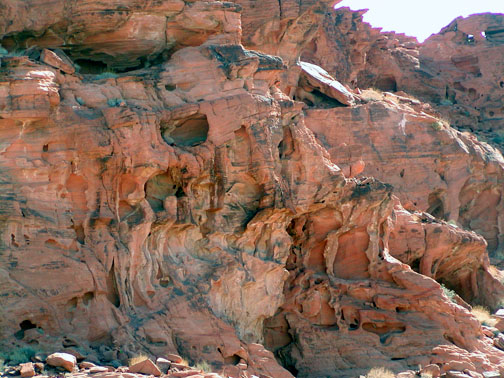
Most people probably visit the park as a brief stop on the way to somewhere else. Many just take the tour and stop at the listed formations then continue on. But if you get out of the car and walk towards any cliff or rock you start to see details of erosion patterns that create fantastic complex shapes. As you get in close you see the sandstone is carved into complex often unexpected patterns that can, for people like me, leave you mesmerized for hours upon hours. If you find complex erosion patterns in red sandstone to be memorizing, The Valley of Fire State Park should be a destination in itself and not just a brief way point on a trip.
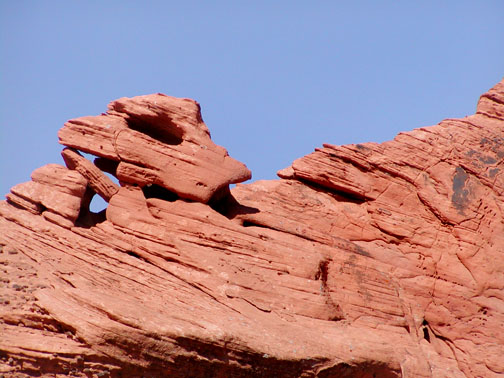
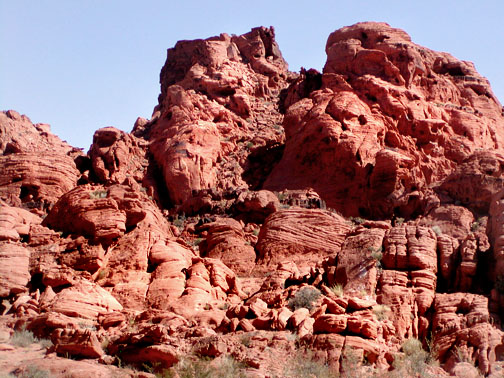
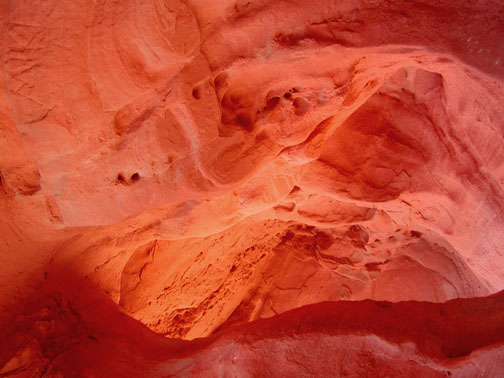
When you look inside the little caves you never know what you are going to see. Sometimes it is fairly dark inside and sometimes the inside is awash with reflected sunlight. Sunlight reflected off the red rocks outside the cave and landing on the red rocks inside the cave brings out the red as a sort of glow. This is the same kind of light that makes slot canyons so photogenic.
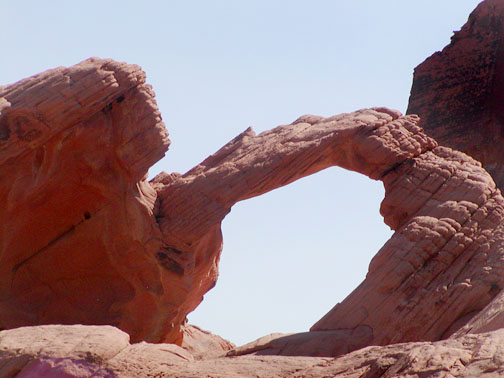
Small arches abound in the red sandstone formations
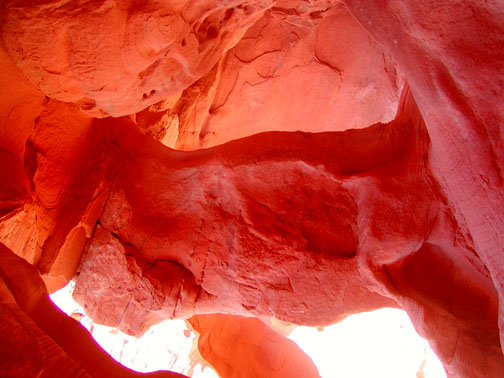
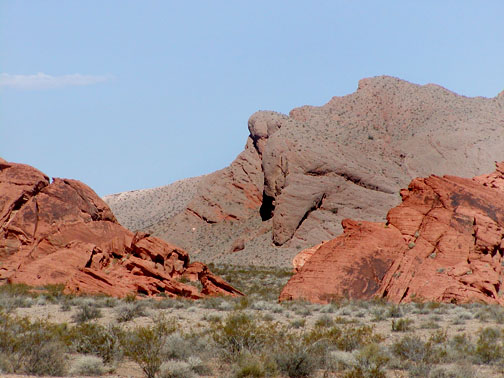
There are two distinct soil types that dominate the valley, the red Aztec sandstone and a thick slate gray layer.
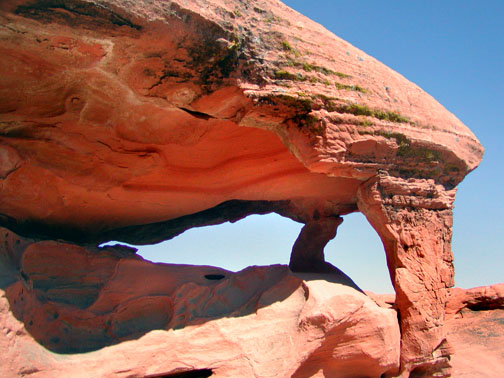
This is the back of a rock called the Grand piano. Someone who needed to name sights for tourists to see thought it looked like a grand piano. Personally I was a lot more interested in seeing how the end of this rock is supported by two thin columns of sandstone.
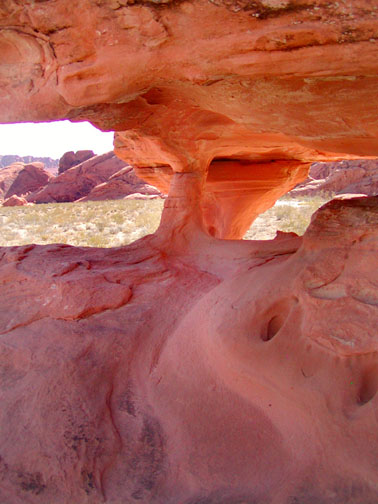
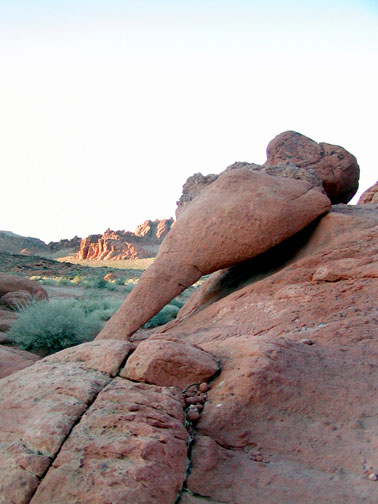
The rocks take on a dull reddish colour when they are in the shade and there is no nearby red rock reflecting light upon them
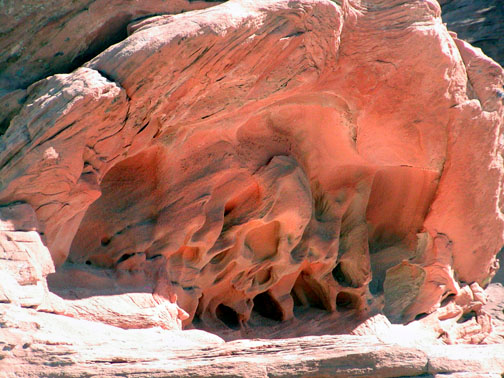
Reflected sunlight brings out both the red colour and puts the rock shapes into sharp relief.
Back to page 15 You
are on Page 16 To
page 17 |
